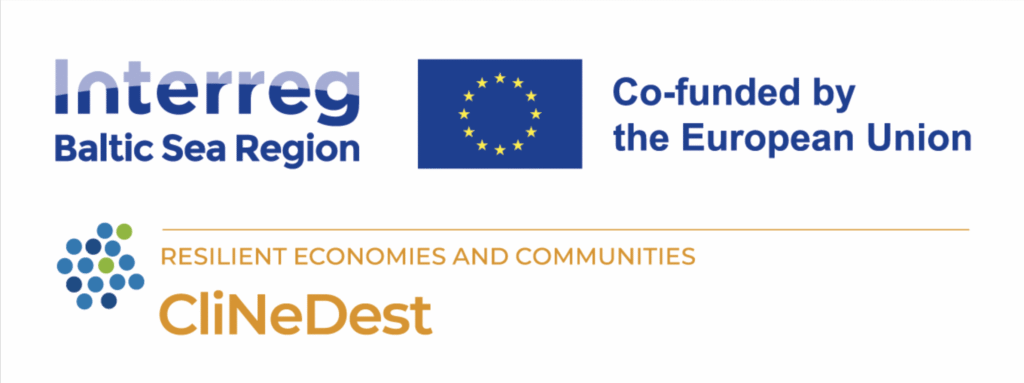Leading the Climate Smart Tourism Business Development in the Baltic Sea Region
In November 2022, Kungliga Djurgårdens Intressenter / Royal Djurgården Society signed The Glasgow Declaration on Climate Action in Tourism, where we committed to take action on the climate issue and helping to reduce the tourism industry’s climate impact. We have taken on this task in various ways. We have developed a Climate Action Plan, which means, for example, that we work for increased and improved public transport, review energy consumption, and measure and reduce our food waste. Now we are taking the work further in an international project with the goal of reducing the destination’s carbon dioxide emissions and becoming one of eight climate-neutral destinations in the Baltic Sea Region.
Climate Neutral Destinations-project
Climate change and increasing customer demands for sustainable low carbon travel options are key challenges for tourism. Tourism industry needs to adapt to the more rapidly changing business environment. Climate Neutral Destinations project engages altogether eight destinations from the Baltic Sea region to co-create a Climate Smart Business Toolkit to help tourism companies address these challenges and make a fundamental transition towards climate neutral tourism business.
The project will provide tourism companies with practical steps and tools for carbon data-based and decarbonizing business development as well as for co-designing low carbon visitor experiences Furthermore, a knowledge management model for climate smart development at the destination level will be developed.
The Climate Neutral Destinations-project is co-funded by the EU Interreg Baltic Sea Region Programme.

PROJECT OBJECTIVES
Transition towards climate neutral tourism business
- Utilization of best tools and solutions for measuring and reducing CO2 emissions.
- Development of skills and cooperation among tourism companies.
Stronger resilience of tourism industry
- Improving foresight and understanding of the effects of climate change and carbon reduction demands for tourism industry.
KEY OUTCOMES
Climate Smart Business Toolkit
The Toolkit is developed and tested in close cooperation with tourism companies through three pilot phases:
- Testing the best tools for measuring carbon footprint and climate smart business development.
- Co-creating and communicating low-carbon visitor experiences in line with the requirements of the EU Green Claims Directive.
- Developing systematic destination level carbon data management in cooperation with destination management organizations, public authorities, and companies. Guidelines to integrate climate smart tourism development in strategic planning.
Climate Neutral Destination Network
A network of climate smart tourism leaders to support the cooperation and show the way for other destinations.
Training Programme
A training programme is targeted at destination management organizations on how to utilize the toolkit and engage tourism companies in the climate work of destinations.
PROJECT FACTS
Project website
More information about the project: CliNeDest – Interreg Baltic Sea Region
Project Partners
- Finland: Visit Tampere (leading partner), City of Helsinki & the Baltic Institute of Finland
- Sweden: Royal Djurgårdens Society
- Denmark: Commercial Fund of VisitAarhus
- Norway: City of Stavanger
- Estonia: Tallinn Strategic Management Office & Stockholm Environment Institute Tallinn Center
- Lithuania: Public Institution Kaunas IN
- Poland: Pomorskie Tourist Board
Project duration
March 2025 – February 2028
Total budget
3 110 000 €
MORE INFORMATION
Read more about the project: CliNeDest – Interreg Baltic Sea Region
Do you want to know more: camilla.zedendahl@royaldjurgarden.se


Through the project, Royal Djurgården works to reduce the city’s environmental impact in terms of emissions, noise and congestion, through improved public transport and more space for walking and cycling. (11.2,6)

Royal Djurgården’s work to reduce emissions promotes the climate. Through the project, Djurgården’s stakeholders are given the opportunity to measure, identify emissions and impacts, and to learn how to reduce their emissions. The same applies at the destination level. The project also includes raising awareness about climate change and resilience. (13.3)

The Climate Neutral Destinations project brings together eight destinations around the Baltic Sea to jointly develop a climate strategy toolbox. (17.17)

